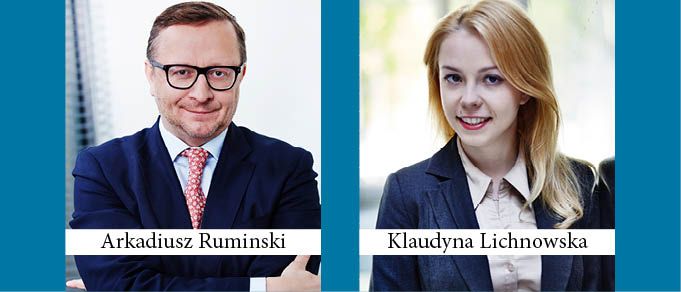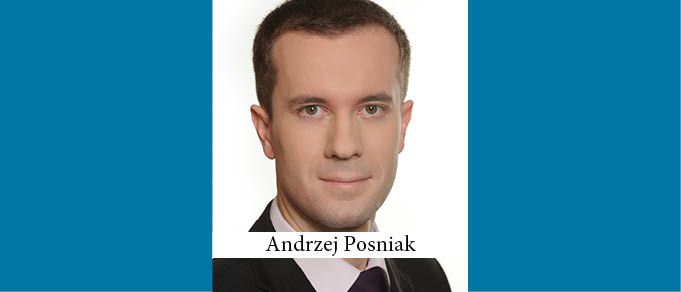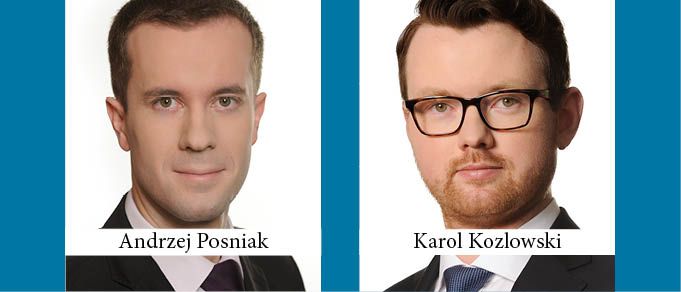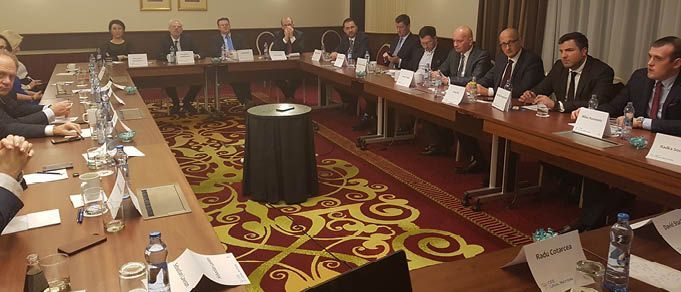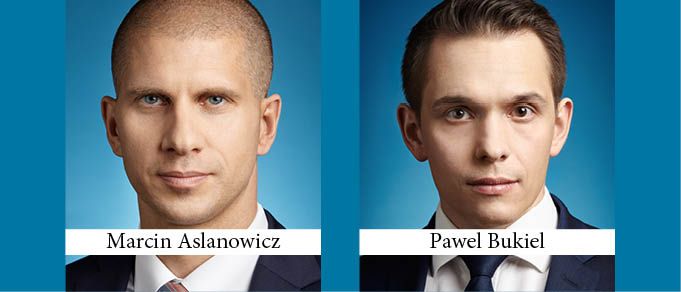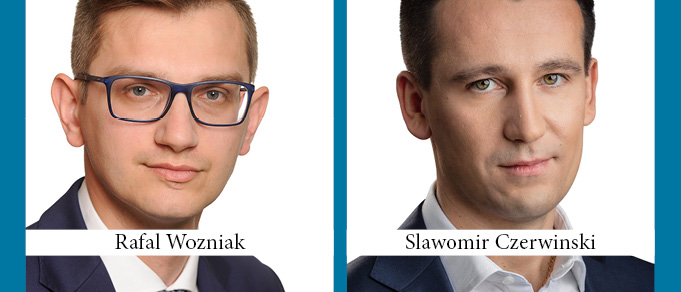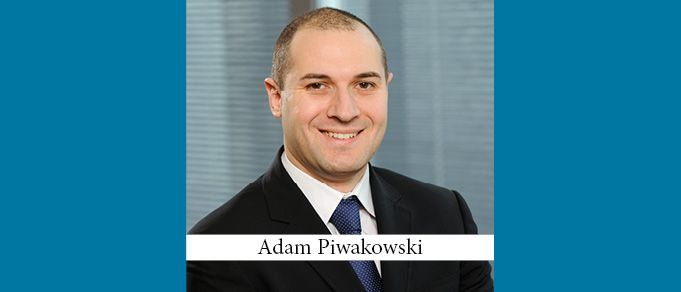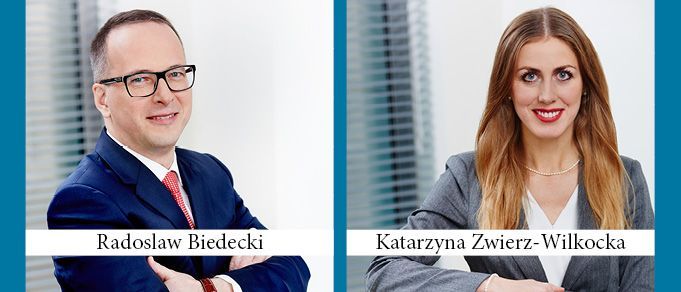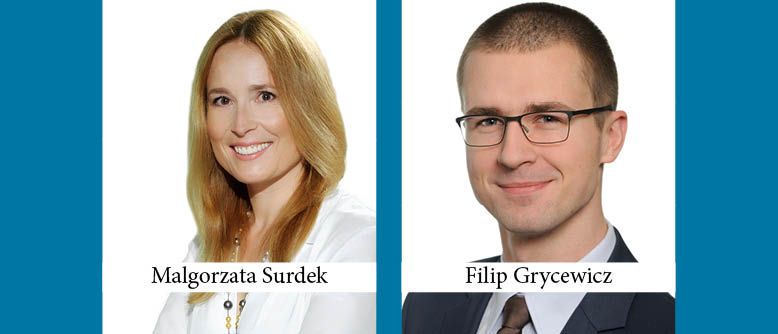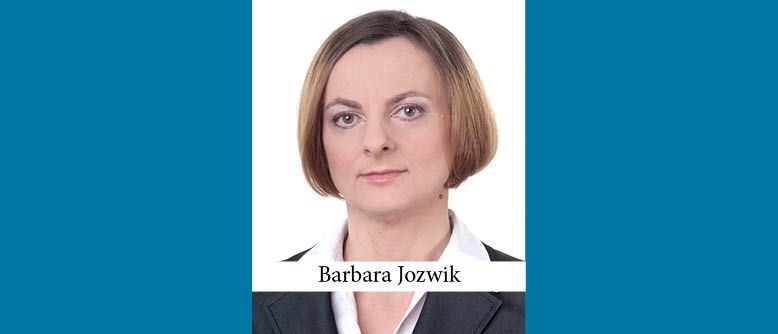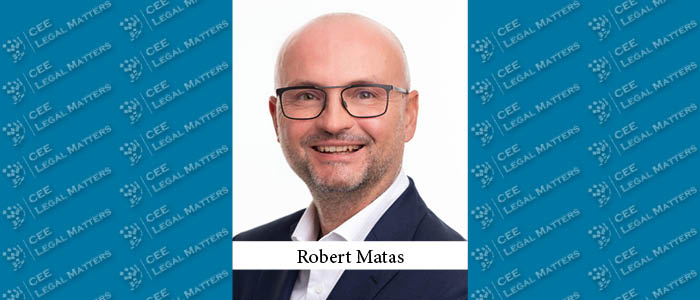The winners of the 2017 CEE Deal of the Year Awards were announced at the first ever CEE Legal Matters Deal of the Year Awards Banquet last night in Prague. The biggest smiles in the joyous and music-filled celebration of CEE lawyering, perhaps, were on the faces of Partners from Avellum and Sayenko Kharenko, which, along with White & Case and Latham & Watkins, won the award both for Ukrainian Deal of the Year and CEE Deal of the Year for their work on the 2017 Ukraine Eurobond Issue (a story initially reported by CEE Legal Matters on October 2, 2017).
Offshore Investments in Polish Maritime Areas
In Western Europe, offshore wind farms have been successfully used for a long time. Meanwhile, no power-generating installation of this type is currently operating on the waters of the Baltic Sea under Polish control.
Company Reincorporation Under Scrutiny: New ECJ Ruling in the Polbud Case
Cross-border reincorporations have long been of interest not only to legal scholars, but also to legal practitioners and entrepreneurs from various business fields.
CMS Poland's Man With Two Hats: Interview with Partner Andrzej Posniak About His Unique Dual Role
Andrzej Posniak started his career in law at CMS in 2003 as a corporate trainee and, step by step, become a qualified tax advisor, then a Partner and Head of the Tax Team in CMS Warsaw's Corporate Department. In addition, Andrzej also fulfills General Counsel and Risk Manager roles for the firm in Poland. CEE Legal Matters sat down with Andrzej to learn more about his unique role.
New Dimension of Taxation in Poland
The current government campaigned before the elections with the slogan “Plugging leaks in the tax system,” and it is now trying to achieve that goal by focusing its efforts on fighting harder against VAT fraud, counteracting aggressive tax optimization in income taxes, and increasing the effectiveness of tax audits.
Experts Gather in Prague for CEE Legal Matters’ Annual Year-End Round Table
On Thursday, November 30th, leading legal practitioners from across Central and Eastern Europe gathered in Prague to help CEE Legal Matters celebrate its fourth successful year as the leading chronicle of the legal industry in the region, participating in an expert Round Table conversation about the year just concluded and enjoying an evening of dinner, drinks, and bonhomie.
A Strong Response to Corruption in Poland
The Polish Government has recently presented a draft Program on Fighting Corruption for 2018 through 2019. This is another step in the ongoing effort to introduce legal mechanisms aimed at reducing corruption in Poland. The process of systematically fighting corruption started several years ago, and it has allowed Poland to move from 43rd place in the Transparency International Corruption Perceptions Index in 2010 up to 29th place in 2017. The aim of the contemplated regulations is to push Poland further up the ranking and continue its transition to a true western-style economy.
Disputes Between Entrepreneurs and Public Sector in Poland Now Open for Mediation Proceedings
Investment involving public funds in Poland is often a source of conflict between public sector entities and entrepreneurs.
We Came, Warsaw, Warconquered: The Third Annual CEE General Counsel Summit Convenes in the Polish Capital
This year’s General Counsel Summit – the annual gathering of leading in-house counsel from across Central and Eastern Europe – convened in Warsaw, on June 1-2.
Expat on the Market: Interview with Daniel Cousens of Linklaters
English lawyer Daniel Cousens has been based in Linklaters’ Warsaw office since 2006. He advises international corporates, private equity sponsors, and strategic investors on M&A deals and inbound and outbound investments in Central and Eastern Europe, particularly in Turkey, Ukraine, and Poland. Cousens co-heads Linklaters’ Turkey desk and is a member of the firm’s CEE and CIS teams. Before moving to Warsaw, he spent five years in Linklaters’ Moscow office. He studied English and French law at University College, London and Universite Aix-Marseille, and he speaks English, French, Russian, and Polish.
Inside Out: Advent International Invests in Integer.pl
The Deal: In February 2017, CEE Legal Matters reported that CMS had advised Integer.pl S.A. on the investment made into the company by private equity fund Advent International. Clifford Chance advised Advent International on the deal.
Tending the Polish Bar: Interview with Maciej Bobrowicz, President of the National Council for Legal Advisors
As part of our year-long series of interviews with the bar associations presidents of CEE, we spoke recently with Maciej Bobrowicz, President of Poland’s National Council for Legal Advisors, at his office in Warsaw.
Guest Editorial: Poland – The Silicon Valley of Europe?
When I first moved to Poland about eight years ago from my native London I encountered a world different from the one where I had spent most of my life.
The Corner Office: The Least Favorite Thing
In The Corner Office, we invite Senior and Managing Partners at law firms from across the region to share information about their careers, management styles, and strategies. For this issue, we asked them to describe their least favorite part of their jobs.
Important Changes to Polish Labor Law
On January 1, 2017, a number of new provisions in Polish labor law came into force introducing some sig-nificant changes for employers and employees and, to a certain degree, for persons hired on the basis of contracts for work and service contracts.
Dispute Resolution in Poland in 2017
As the first half of 2017 draws to an end, dispute resolution in Poland continues to face dynamic changes. This is due to numerous pieces of legislation being implemented as well as certain policy issues of the ruling party. We focus in this article on several trends or changes that our clients are struggling with or which might affect businesses in the foreseeable future.
Temporary Employees to Benefit from Improved Regulations
The Polish Act on Temporary Employees dated July 9, 2003 (Journal of Laws of 2003, No. 166, item 1608, as amended) has been in force since 2004. The Act contains many flaws, however, resulting in the unequal treatment of temporary employees compared to employees hired directly under employment agreements.
Reviewing the Polish Restructuring Law
Almost a year and a half after Poland’s Restructuring Law entered into force, introducing a clear separation between restructuring and bankruptcy, now is a good time to review its affects.



